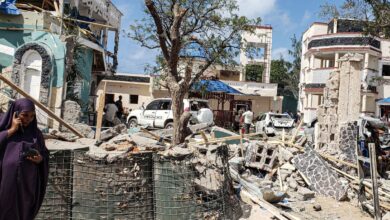Somalia
UNICEF Warns Thousands Of Malnourished Children At Risk Of Dying In Somalia

The United Nations Children’s Fund (UNICEF) on Tuesday warned thousands of severely malnourished boys and girls in severe drought-hit Somalia are at risk of dying, urging donor countries and organizations to step up support amid historic drought, reported The UN News.
Somalia has already faced four consecutive years of failed rains and is witnessing a possible fifth season of drought. The failed rains has destroyed peoples’ ability to feed themselves and has forced millions to leave their homes in search of something to eat and essential basic relief.
The humanitarian crisis has had a worse impact on Somalian children. According to a UNICEF report, the number of severely acutely malnourished children in the country is skyrocketing. In August alone, the UN agency reported that 44,000 children with severe acute malnutrition were admitted to health facilities for emergency treatment.
UNICEF spokesman James Elder said as per data, a child is admitted to a health care facility in Somalia every single minute of every single day.
“Severely acutely malnourished children are 11 times more likely to die of diarrhea and measles than are well-nourished children,” Elder said.
The UNICEF spokesman added that considering the rates, Somalia is really on the brink of a tragedy at a scale not seen in decades.
An estimated 7.8 million people, almost half of Somalia’s population, are now affected by drought, of whom 213,000 are at high risk of famine.
The UNICEF spokesman stressed that long-term funding will be critical “to prevent famine from happening, again, and again”.
On Tuesday, the UN humanitarian affairs office (OCHA) reported that a famine is projected in Somalia’s Baidoa and Burhakaba districts in Bay Region between this month and December, if aid does not reach those most in need.
UN agencies have been warning for months about the looming famine in the Horn of Africa, where the worst drought in 40 years is affecting more than 20 million people across several countries.






